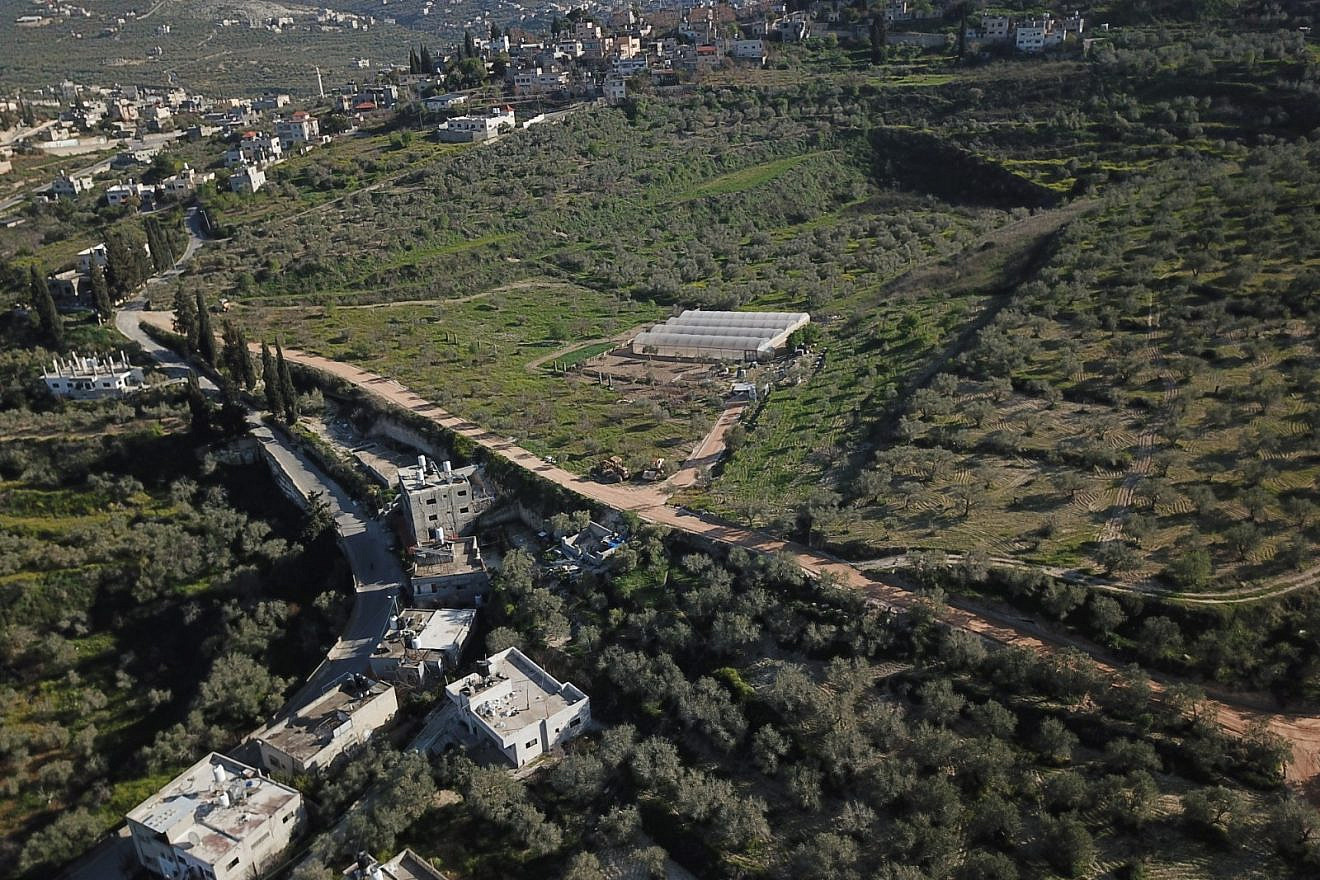Sebastia is being conquered once again. This morning, the Palestinians paved a new road on the site that served as the capital city of the Israelite Kingdom in the 8th and 9th Centuries BCE.
The ancient Sebastia served as the capital of the Kingdom of Israel under the name of Samaria in the 8th and 9th centuries BCE. Alexander the Great, King Herod, and medieval Islamic rulers have also left their marks on the history-rich site. According to tradition, the town is also the burial place of John the Baptist, revered by both Christians and Muslims.
As the seat of the Israelite kingdom, ancient Shomron boasted a magnificent palace and impressive public structures; today, the remnants of this glory lie above and below the surface but are not yet fully excavated and documented. Now, it may be too late for large sections of this unique and crucially important historical site: The massive damage caused by heavy machinery and paving equipment can not be undone.

Destruction of the artifacts and physical record of Jewish history in Shomron/Sebastia has been going on for years – some of it with the support of UNESCO, the United Nations body entrusted with the preservation of historic sites worldwide. Today’s destructive project is part of a concerted effort by the Palestinian Authority to erase the Jewish connection not only to Judea and Samaria but to all of the Land of Israel.
The monstrous proportions of illegal Palestinian construction in the cradle of Israel’s biblical heartland also pose a severe security threat that will inevitably explode in the next murderous wave of Palestinian Authority-supported violence.
The illegal destruction of Biblical sites in Judea and Samaria is being documented by Regavim, an NGO watchdog that monitors construction in Judea and Samaria.
“Israel is being conquered by enemies sworn to our destruction, literally right before our eyes and below our feet,” Regavm wrote in a statement. “If we don’t wake up and face reality, the price that Israel’s citizens may have to pay will be unspeakably high.”

Sebastia, located outside the Arab city of Nablus (Shechem) has been damaged by the Arabs over the last three decades because it falls under conflicting Israeli and Palestinian jurisdiction as stipulated by the Oslo Accords.
Last year, it was discovered that a road had been paved in the heart of the archaeological site. During the construction work, a wall dating back to the Herodian times (37 BCE-73 CE) was destroyed and burial caves dating back to the Second Temple period (586 BCE-70 CE) were smashed, looted and obliterated. In addition, carcasses of wild boars were found thrown into the ancient graves.
The PA has applied to have the site listed as a United Nations Heritage Site. The UN website describes the archaeological site as being in “Palestine” and, while citing the Biblical reference as being the capital of the “northern kingdom” during the “Iron Age”, it does not mention the connection to Jewish history. Israel is only mentioned as having “control” of the area.


